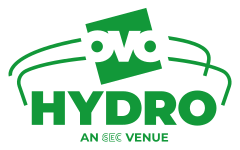Electrochemical Society
-
Can you tell me a little about your background and experience? How many meetings do you organise through The Electrochemistry Society (ECS) per year?
-
I joined ECS in September 2013 in the role of Development Manager. During this time I was responsible for managing and coordinating fundraising activities to support ECS’s priorities and mission, managing and developing relationships with supporters, as well as the sales and coordination of the digital and print advertising programs. Additionally, I spent a great deal of time managing the ECS meeting symposia funding program, working closely with volunteers and funding agents to facilitate funding decisions and ensuring accurate reporting for annual meetings. In July of 2014, I became the Director of Meetings. Now I am responsible for directing the development, organisation, and planning of ECS biannual meetings, satellite conferences, and other ECS sponsored events. I work closely with other senior staff and volunteer leaders to ensure the meetings deliverables support the Society’s goals and objectives. ECS holds international meetings in the spring and fall of each year, providing a forum for exchanging information on the latest scientific and technical developments in the fields of electrochemical and solid-state science and technology. ECS meetings bring together scientists, engineers, and researchers from academia, industry, and government laboratories to share results and discuss issues on related topics through a variety of formats, such as oral presentations, poster sessions, panel discussions, and tutorial sessions. In addition to the biannual meetings, ECS also organises satellite and sponsored meetings.
Prior to joining ECS, I worked at the National Conference Center in East Windsor, NJ, as the Director of Corporate Sales. During my time at the National Conference Center I focused on new client development and conference centre operations while consistently exceeding revenue and sales budgets. Additionally, I spearheaded the implementation and distribution of new corporate packages and marketing materials to ensure the conference centre remained competitive.
Previously, I was the Social and Corporate Events Manager at Nicholas in Red Bank, NJ. Nicholas is recognized as New Jersey’s number one Zagat-rated restaurant since 2005, as well as one of Gayot’s Top 40 Restaurants in the U.S. During my time at Nicholas, I organised and managed the annual Two River Theater’s Anniversary charity gala, and was responsible for all aspects of social and corporate events, including maximizing event revenues and event operations management. I value my time at Nicholas as I feel it was where I realized my passion for detail and honed my ability to easily manage complex issues, creatively and effectively, while keeping the consumer’s best interests in mind.
I attended The College of St. Elizabeth in Madison, NJ, for biology in 2004 and Middlesex County College in Edison, NJ, for business in 2007, spending several years volunteering and fundraising for various nonprofits.
As said best by one of ECS’ first members, I believe “There is no substitute for hard work.” -Thomas A. Edison.
-
Why did you choose Glasgow? You spoke a little about it being a natural fit for the conference and Glasgow because of the renewables link, can you expand on this?
-
Selecting a European meeting location for this conference was by no means an easy or quick task, as the cost and location of a meeting influence both the financial success and meeting attendance. ECS spent several years scouting locations and obtaining RFPs before contracting with Glasgow. The support of the city and the Glasgow City Marketing Bureau helped to incentivize the deal with their experience, education, and professionalism. The Glasgow City Chambers and the Glasgow City Marketing Bureau perfectly executed everything they promised to deliver through their outreach, marketing, and support efforts. They are so passionate about their city that I think it actually rubbed on our staff and attendees; by the end of the week it felt as if we were all local ambassadors. Glasgow allowed us to be financially and programmatically successful due to the competitive packages, top-notch bureau staff, and cutting edge meeting space. Not to mention that Glasgow is extremely accessible via 4 airports, and has ample housing options for all budget ranges. It was clear that attendees saw the value in Glasgow. We could not have been more pleased with their efforts and we genuinely look forward to returning.
We were fortunate to have Fergus Ewing, the Scotland Minister for Energy, Business, and Tourism, join us to discuss Scotland’s renewable energy programs, and goals. Minister Ewing characterised why Glasgow was a natural fit for our conference. Minister Ewing explained why Glasgow, Scotland’s largest city, is a fitting venue when considering the country’s goal of utilizing 100 percent renewable energy by 2020.
In 2012, Scotland pulled 40 percent of its power from renewable resources—a 24 percent increase over 2010. Scotland is expected to hit the half-way point on the path of obtaining 100 percent renewable energy this year. Minister Ewing said, “I am delighted that The Electrochemical Society chose Scotland as the platform for some of the top researchers globally in fuel cells and batteries to come together and discuss advances and engineering innovations. Events such as these are a great opportunity to showcase all that Scotland has to offer for both leisure and business. It also gives me the opportunity to highlight that Scotland’s universities (spearheaded by the Energy Technology Partnership) are at the leading edge of innovation in a broad range of energy storage and conversion technologies.”
Ewing went on to say, “For our part, the Scottish Government and its agencies are working together to open markets, help companies to innovate, make production efficiency savings, and safeguard jobs in order to strengthen the Scottish share of global markets. They are part of a cultural shift that brings the innovation and creativity of our academic sector to the heart of our business life and puts business drive firmly into the heart of our academic sector.”
-
I’m also keen to explain the conference’s position as an inaugural meeting and why you decided to merge Electrochemical Energy Conversion & Storage with SOFC-XIV?
-
It is ECS’s goal to create successful biennial meeting opportunities in Asia and Europe, with the intention of alternating every other year. These conferences are proposed as jointly planned events involving ECS and other societies or organisations in our discipline. Frequency of activities in Asia and Europe improves the ECS reach and engagement worldwide. The biannual meetings don’t occur with enough frequency to create the same opportunity. Circumstances influencing meeting success and accessibility negatively impact biannual meetings held in Europe and Asia. Meetings outside the U.S. inhibit government-funded employees and raise questions about planning more frequent biannual meetings outside the USA.
As the ECS Conference on Electrochemical Energy Conversion & Storage (ECS CEECS) with SOFC-XIV was the first European ECS satellite meeting, its success was critical. This first international ECS CEECS convened in Glasgow, July 26-31, 2015, at the Scottish Event Campus. More than 800 attendees from over 40 countries explored three main symposium topics.
More than 400 oral presentations and 300 poster presentations added great depth to the scientific material presented in Glasgow. The ECS CEECS served as a major forum for the discussion of interdisciplinary research from around the world through a variety of formats, such as invited and keynote oral presentations, poster sessions, and exhibits. This was the first of a series of planned biennial conferences in Europe by ECS on electrochemical energy conversion/storage materials, concepts, and systems, with the intent to bring together scientists and engineers to discuss both fundamental advances and engineering innovations.
The size of the meeting, and focused topical areas, allowed attendees to fully participate and listen to a broad range of new topics throughout the week while networking with fellow colleagues and associates.
ECS holds international meetings in the spring and fall of each year since 1902. Providing a forum for exchanging information on the latest scientific and technical developments in the fields of electrochemical and solid-state science and technology. ECS meetings bring together scientists, engineers, and researchers from academia, industry, and government laboratories to share results and discuss issues on related topics through a variety of formats, such as oral presentations, poster sessions, panel discussions, and tutorial sessions.
-
What was it like working with the SECC?
-
Glasgow has proven to be a great city full of wonderful people. The SECC carried these attributes to the next level, they enhanced our planning process with their experienced staff and were well equipped to handle any concerns with creativity and the utmost level of professionalism. The venue is an attraction unto itself!
-
In what ways did the delivery team contribute to the success of the meeting?
-
The delivery team proved to be our right hand as they operated as a part of our staff. The entire team took the initiative to learn all aspects of our meeting from the technical program sessions to the social events in the evenings. The AV team played a huge role in ensuring all of our talks throughout the week and AV needs were met; they flawlessly executed our program with an extremely pleasant and passionate demeanor. One of our biggest worries was not having enough ECS staff onsite with us during the meeting, but thanks to the delivery team this worry was put to rest as soon as we arrived and met with the staff. It is rare to find convention centre staff that has as much passion, dedication, and genuine interest in their jobs and the programs they work on as do the folks at the SECC.
-
In what ways were you able to utilise the venue to get more out of your meeting?
-
The venue offered our meeting attendees many opportunities to network, collaborate, and socialise together, which is hard to find for group of 800. As many of our attendees are meeting for the first time or catching up with colleagues, having the space for them to connect is invaluable; the space at the SECC encouraged hallway conversations and mealtime discussions. The meeting space layout was very conducive to running simultaneous sessions for various sized groups. Additionally, the registration and exhibition area was top-notch as it allowed the attendees to come together as a group multiple times a day. The large space in Hall 1 and Hall 2 for registration and exhibits is a great setup as it opens up to be one large hall. Not only were our attendees pleased with this setup but our exhibitors were quite happy as well. Overall, the flexibility of the meeting space and options within the breakout rooms allowed us to run the meeting in the most efficient manner.
Contact Us
Select the link below to speak to one of our team members about your event today.



